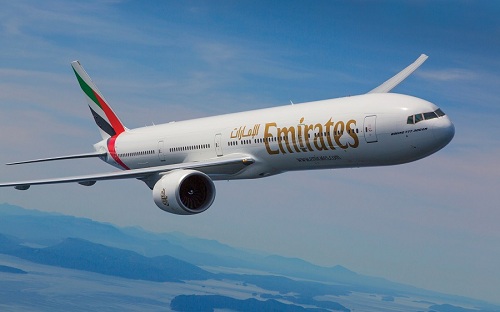This post has already been read 2044 times!
Dubai-based Emirates airline on Tuesday posted a $5.5 billion annual loss, its first in more than three decades after the coronavirus pandemic devastated the aviation industry.
The carrier said it received a capital injection of $3.1 billion from its owner, the government of Dubai, to help it survive the crisis.
The Emirates group was “hit hard by the drop in demand for international air travel as countries closed their borders and imposed stringent travel restrictions”, said chairman and chief executive, Sheikh Ahmed bin Saeed Al Maktoum.
“No one knows when the pandemic will be over, but we know recovery will be patchy,” he said in a statement.
The Middle East’s largest carrier said that the fallout triggered a loss of 20.3 billion dirhams ($5.5 billion) over the financial year to March, after last year’s 1.1 billion dirhams ($288 million) profit.
The airline, which was forced to temporarily suspend operations last year, saw revenue fall 66 percent to $8.4 billion.
Over the fiscal year Emirates carried 6.6 million passengers, down 88 percent from the same period in the previous year.
“Economies and companies that entered pandemic times in a strong position, will be better placed to bounce back.”
– Heavy layoffs –
The last time the airline reported a loss was in the 1987-88 financial year, when it was starting up its operations.
Read Also
Like other major carriers, Emirates began announcing heavy layoffs when its fleet of A380 superjumbos and Boeing 777s was grounded.
In Tuesday’s statement, it said the Emirates Group’s employee base — which includes ground-handling firm Dnata — was slashed by 30.8 percent to 75,145 employees.
Before the virus hit, Emirates airline alone employed some 60,033 staff, including 4,300 pilots and nearly 22,000 cabin crew. The workforce has now shrunk to 40,801 staff.
Emirates is currently flying to 157 destinations, almost its full travel network of 158 destinations in 85 countries before the pandemic.
After an initial strict lockdown, life in the Gulf emirate — one of the first destinations to welcome visitors again last July — has returned to largely normal, with restaurants and hotels up and running and beaches open to the public.
The UAE, made up of seven emirates including Dubai, has launched an energetic vaccination drive with some of the highest inoculation rates worldwide, and continues to enforce strict rules on wearing masks and social distancing.
But both Emirates and Abu Dhabi-based carrier Etihad have said passenger demand may not return to pre-coronavirus levels until 2023.
Other regional airlines have suffered, and both Emirates and Qatar Airways have said they each received $2.0 billion in state aid.
(AFP/Punch)



